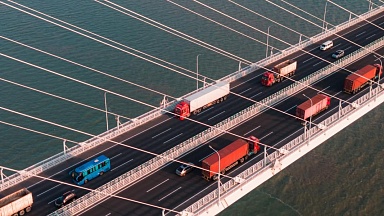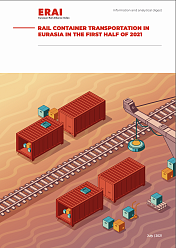The train carries various local products from Nanjing such as medical equipment, new energy accessories, electronic products with a total value of nearly 7 million USD. Memorably, it’s the first direct railway service between Jiangsu Province and the Dutch province of North Brabant since they established their sister relationship 27 years ago. The previous link was mainly via the Port of Rotterdam.

Jiangsu and North Brabant
Jiangsu Province is located in the delta area of Yangtze River with an extensive network of inland barge and sea shipping ports and is one of the pioneering provinces in China to operate block trains on the New Silk Road. Jiangsu has tight bonds with the North Brabant region in the Netherlands, and the two of them collaborate in the fields of technology innovation, biomedicine and intelligent logistics. According to the customs data in 2020, the total import and export between China and the Netherlands was 91.7 billion USD, of which Jiangsu contributed approximately 20 per cent.
Jiangsu International Rail Freight Express was founded on 31 August 2020. Since the first moment, GVT Group of Logistics from Tilburg signed a Memorandum of Understanding (MoU) with this fully state-owned platform company to develop new connections between the two regions. This vision is finally turned into reality with the whistle of the first direct train.
«In addition to providing logistics services related to the China Europe Express, we are also looking for the right cargo type to export from the Netherlands, to achieve balanced trips», explains Roland Verbraak, General Manager at GVT Logistics Group.
The Netherlands and China
Besides the Nanjing-Tilburg railway services, the Netherlands is welcoming direct trains from China regularly. However, the two countries have an even greater potential for rail freight transit.
Therefore, on 20 May, the Consulate General of the Kingdom of the Netherlands in Chongqing, Holland International Distribution Council, Road2Holland Consortium and Railfreight.cn will hold a webinar focusing on the rail terminal and multimodal solutions between the Netherlands and China. The webinar will take place digitally. Check the agenda below and register for free!
More to offer
This webinar is part of a series called «The Netherlands Connects». To better portray the Netherlands’ leading role in international trade and logistics, our webinars will focus on different topics:
- 20 May From Rail Terminal to multimodal solutions between NL and China
- 17 June Fresh food supply chain management from land to table
- 15 July Cross-border e-commerce and parcel shipping
- 19 August Fresh Flower Supply Chain and Global Flower Hub
- 16 September Chemical powerhouse and dangerous good transport
- 18 November High Tech Cargo transport and Supply Chain security
The series of webinars will be offered in both English and Chinese and stream towards China. Are you interested in joining us to showcase the combined strength of the Dutch Logistic force? Don’t miss the chance of free registration.




